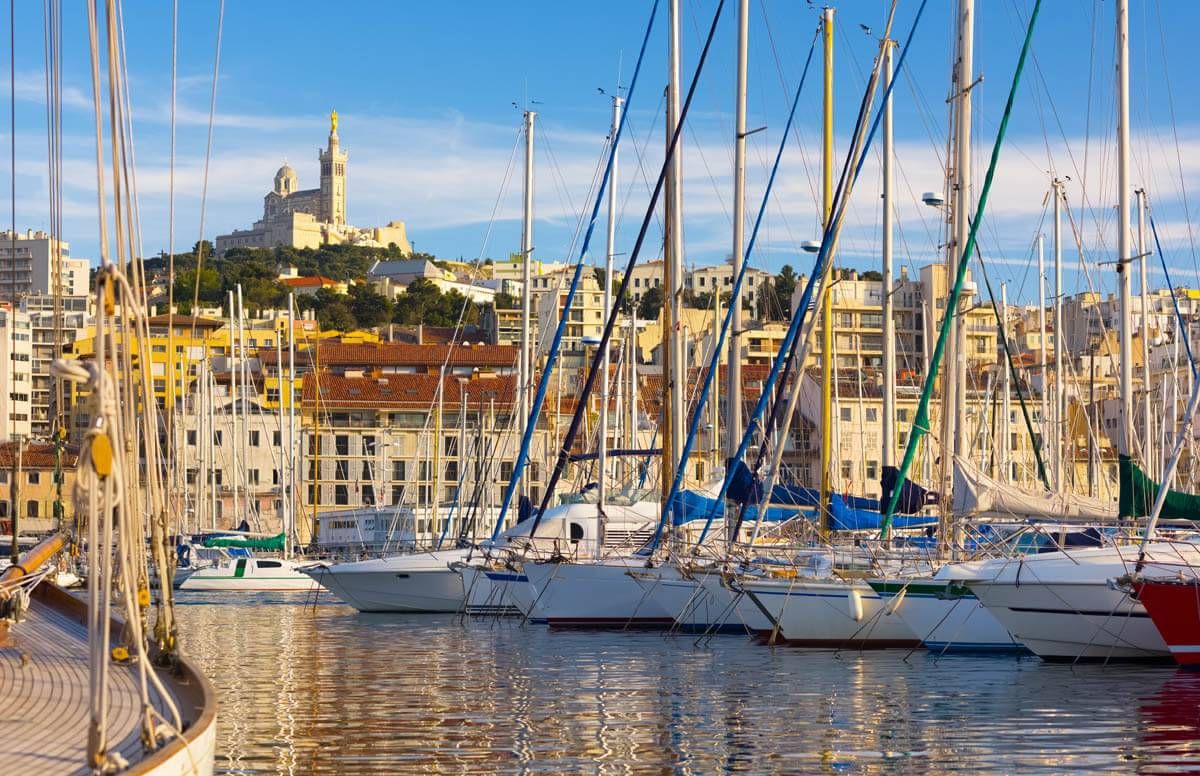Global Greeters Offer More Than a Pleasant Walk for Travelers
This international program encourages volunteers to share their city with tourists
My wife Karen and I walked briskly down the Quai du Port, a brick-paved, sun splashed street paralleling the Marseille harbor in the oldest section of this very old city in France. We were moving with some haste because we were a few minutes late for our appointment and felt a bit relieved when we at last spied our agreed-upon meeting point: a row of flagpoles outside City Hall where a pleasant looking fellow stood. He gave us a big smile as we approached.

“William and Karen?” he said. “I am glad to meet you. I am Patrick.”
Patrick was our Global Greeter, a volunteer who enjoys walking with out-of-towners around his beloved city. After some short introductions, we set off on foot into the warrens of the city. Our daylong walk together took us through the Old Port, the areas around l’abbye St. Victor and le Panier, and we even sampled a bit of the local cuisine and wine. Greeter Patrick told us all about his old French city in a way that can only be done with the help of a knowledgeable native who takes great pride in his culture and wants the world to understand why it is special.
The Friendly Global Greeters
How much did this memorable experience cost us? The answer may surprise you: Nothing. It was arranged under the auspices of the Global Greeter Network, a loosely affiliated group of friendly people operating in more than 100 places around the world — from Algeria to Vietnam — who want nothing more than to show you their city.
Yes, it’s true; it just might be that the best way to get to know a city doesn’t come from a guidebook or an app on your smartphone. It comes from one-on-one interaction with a savvy local as you walk the streets of an interesting place together. But how do you find a person willing to show an out-of-towner around and do that in a language you can understand?
The Global Greeter Network makes that easier than you might think; it is a fine example of altruism and international friendship. In select cities around the world, visitors can go online to book free, small-group visits led by local volunteers who really know their stuff.
Connecting Volunteers with Visitors
The first Global Greeter program was established in New York City in 1992. The next city to join was Melbourne, which was followed by Buenos Aires, Chicago and Adelaide. The network has since grown to more than 60 cities worldwide. Besides New York, the United States has programs in Chicago, Houston, Nashville, and Salem, Oregon. Europe has the highest concentration of programs, and similar ones exist in smaller numbers in Australasia, Africa, Asia, and South America.
Besides Marseille, Karen and I have had “greets” (the local greeters explain that the meetings are not guided tours but instead person-to person-experiences in new locations) in Melbourne, Bilbao, Canterbury, Boulogne and Hamburg. Every one of them left us feeling like we not only knew a place, but we also knew a friend there as well.
The Greeters Value Connections
No matter where they are, global greeter programs follow the same basic format: the greeter visits are provided without charge, the group size is limited to six people or less and the trips typically are undertaken on foot or via public transportation. Some greeter organizations won’t accept tips or donations; others do. But it’s always nice to offer to buy your new friend a coffee or beer along the way.
Over those libations, we often talked with our greeters about their motivation for doing this.
“So you want to know why I am a greeter?” asked Patrick, while sipping a vin rouge in a Marseille brasserie. “It is very simple. I am retired and I can give a little part of my time to tourists hoping to have a general survey of Marseille. I am not a guide, but I can show them some typical places and highlight the old city and its traditions.”
He continued, “It gives me pleasure to meet different people and nationalities, to exchange our experiences, and our points of view about a lot of things: food, wine, traditions, history and political events in our countries.”
Walking and Talking
For greeters, this program provides opportunity to share a pleasant walk. We found that invariably, our greeter was a person who had intimate knowledge of a place, and the time and inclination to share what he or she knew.
“Being a greeter is a great volunteer experience for everyone, but it has added benefits for those that are semi- or fully-retired,” said Katie Law, the current chair of the International Greeter program and a member of the Chicago chapter, where about two-thirds of the greeters are retired. “It also exercises the brain because greeters must remember dates, locations and history.”
Alison, our greeter in Canterbury, England, certainly knew a great deal about dates, locations and history. Best of all was that she was particularly knowledgeable about architecture. We walked the central district of the city together, exploring and discussing the way this very old Kentish city grew up around its famous cathedral. It was a long, active day, but always interesting, and that’s another reason both the greeters and greeted like it.
“(Being a greeter) is active — we walk visitors all over the city,” explained Law. “For those volunteers that know another language, they find that this is a great way to practice language skills by highlighting the city for guests from France, Germany, China, Italy and elsewhere.”

